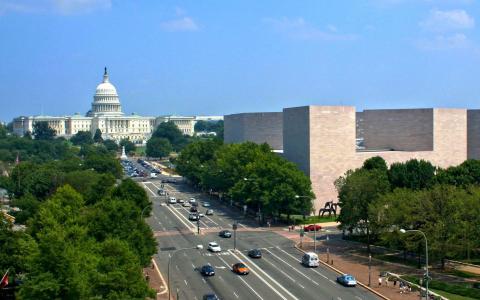
The Federal Reserve's aggressive rate hikes have impacted bond yields, the housing market, and commercial real estate. However, the most significant implication may be on the US government itself, suggests Barry Sternlicht, the billionaire CEO of Starwood Capital Group.
Sternlicht commented at the Future Investment Initiative in Saudi Arabia, "With the current rate hikes, the federal government is bearing the brunt, now obligated to pay 5% interest on a staggering $33 trillion debt."
Since March 2022, the federal funds rate has escalated sharply from 0.08% to 5.33%, marking the swiftest rise in four decades. Sternlicht believes this trajectory is unsustainable, saying, "In the face of such steep hikes, the Fed will eventually have to reverse course. Western democracies simply cannot sustain such elevated rates without resorting to excessive money printing to meet their interest obligations."
Adding to the concern is the apprehension among some experts that the rate escalation might deter investors from US government bonds, leading to unsuccessful Treasury auctions. The recent downgrade of America's credit rating by Fitch Ratings further intensifies the skepticism surrounding the traditionally viewed safe-haven status of US Treasurys.
Contrasting the current economic backdrop to the 1980s, Sternlicht emphasized the unprecedented scale of US debt. "While many draw parallels between Jerome Powell's approach and Paul Volcker's tactics to combat inflation in the 1980s, it's essential to note the difference in the fiscal environment. Volcker was navigating a $200 billion deficit, not the $33 trillion we see today."
The US debt has been further augmented by recent fiscal stimulus initiatives. Central to President Biden's economic blueprint is the infusion of substantial capital into specific sectors. Initiatives like the CHIPS Act, aimed at elevating domestic semiconductor production, and significant legislations like the Inflation Reduction Act and the Infrastructure Bill, underscore the magnitude of recent governmental expenditures.
However, while these measures prop up the economy, the increased rates exert pressure on private entities by escalating their borrowing costs. Sternlicht summarizes this delicate balance: "On one hand, you have the federal government's robust spending, while on the other, the private sector grapples with the repercussions of these surging interest rates.
This imbalance not only affects current operations but also raises the specter of impending inflation. For instance, the current rates deter the construction of new homes, underscoring the broader challenges posed by such high-interest rates."



